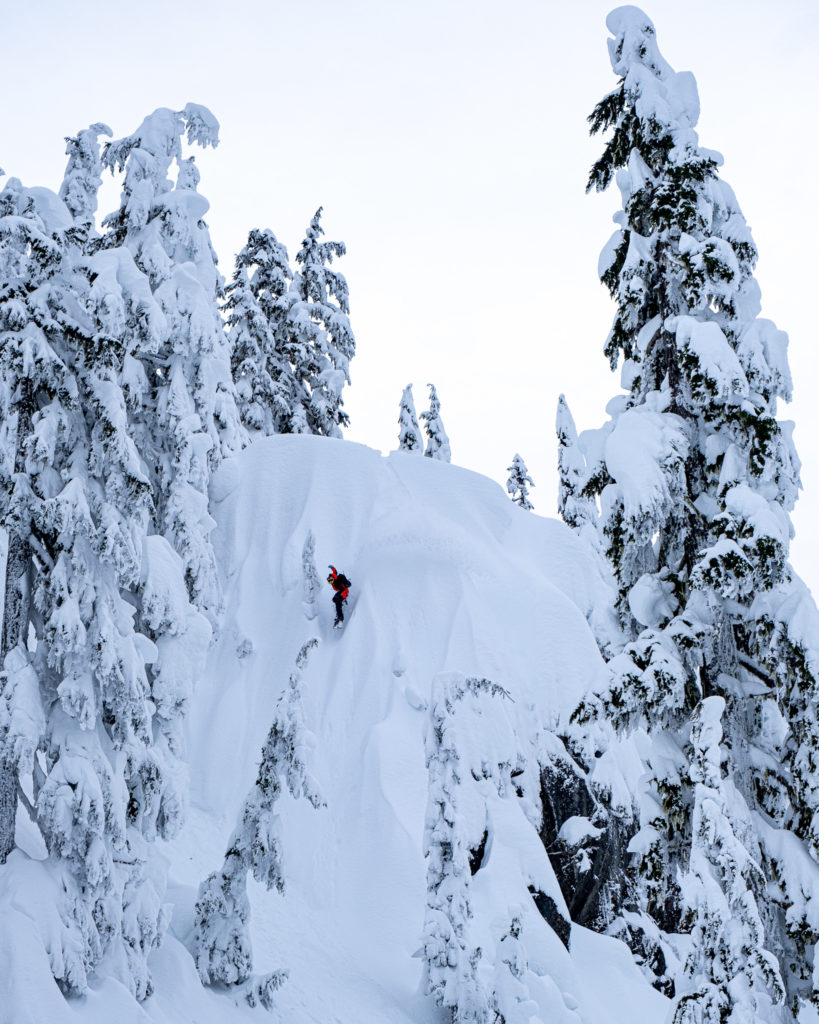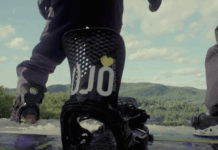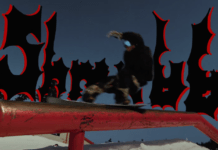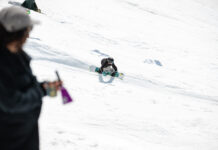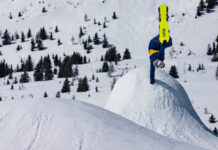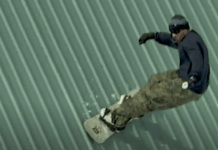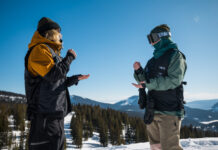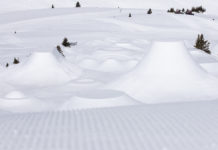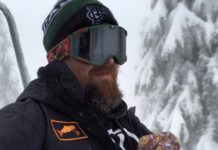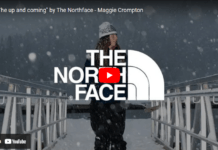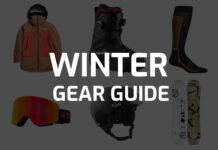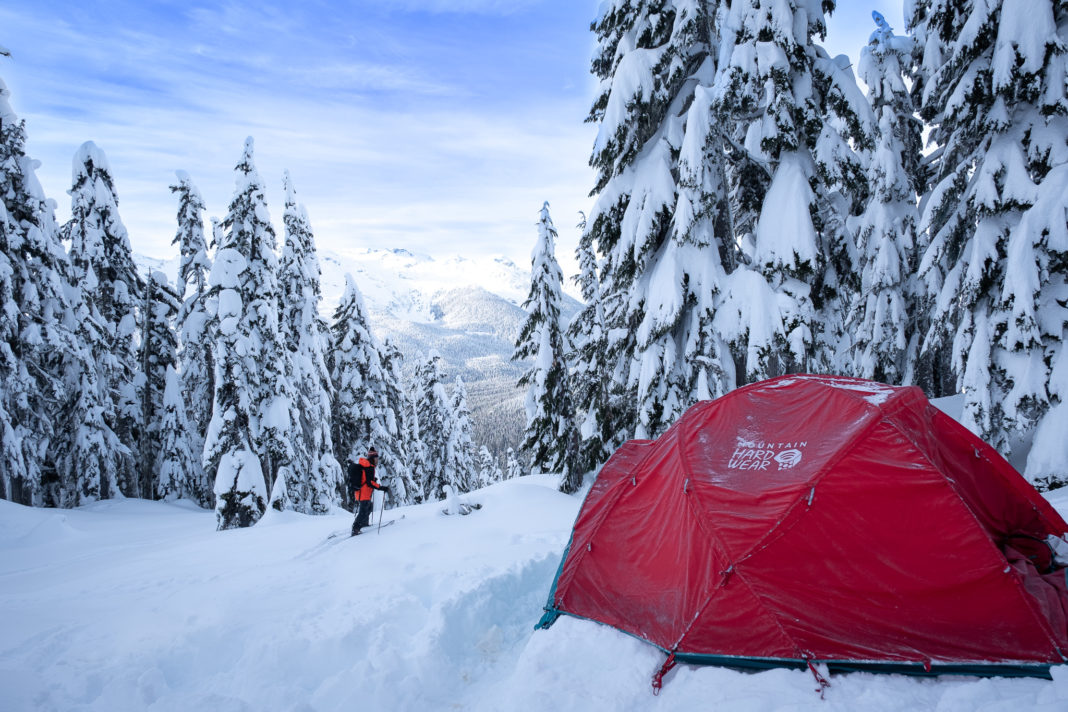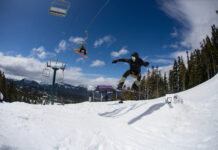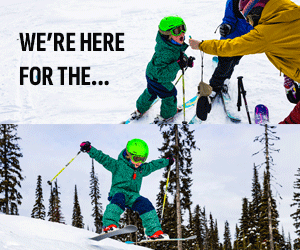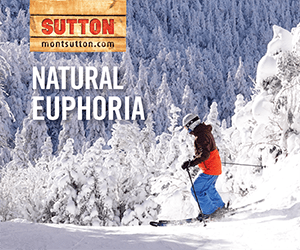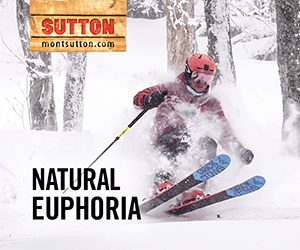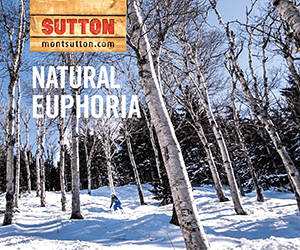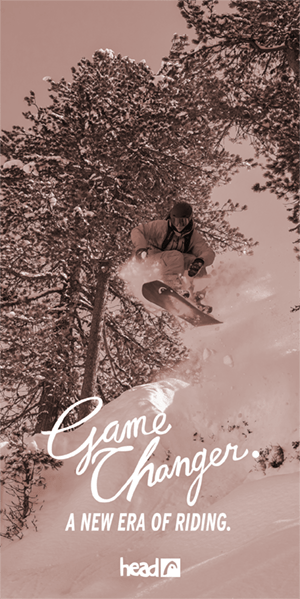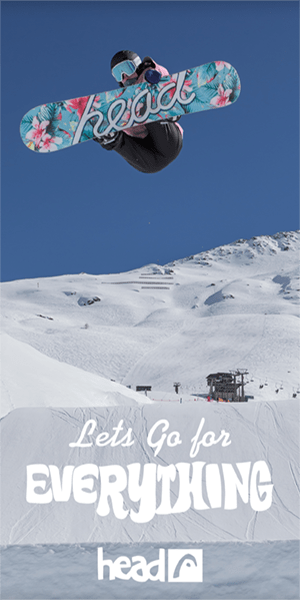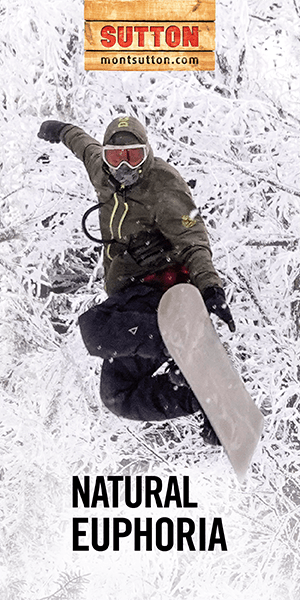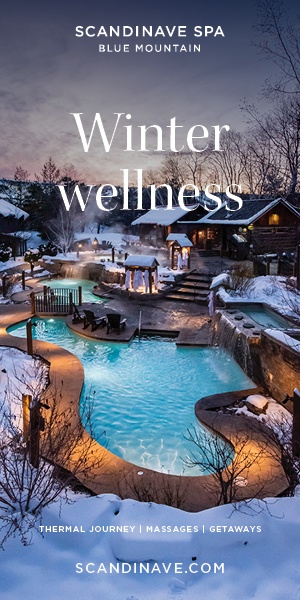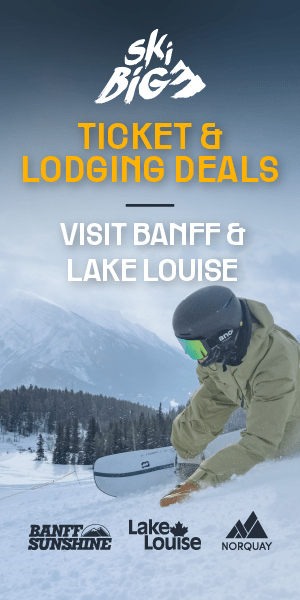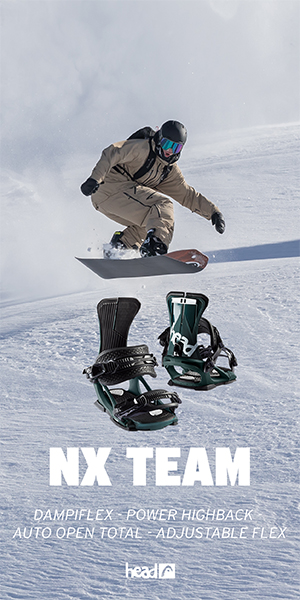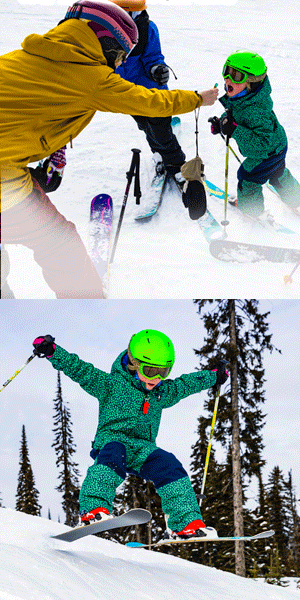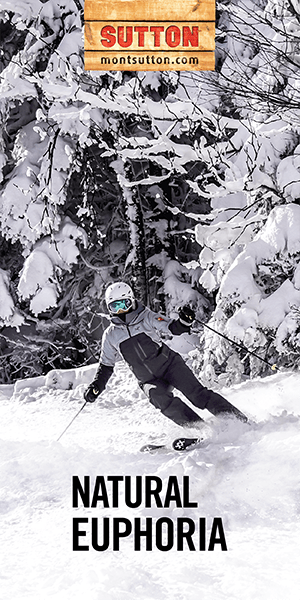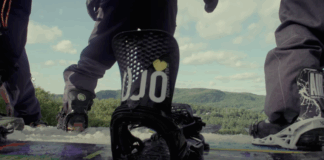Darrah and Will chat about big mountain and backcountry safety
Will Kovacic is a ripping snowboarder as well as an Avalanche course instructor in Whistler. He taught me all about windward and leeward slopes, how to dig a pit to test snowpack, responsible decision making when riding out of bounds, how to use my probe, etc! My main takeaway was that I have so much more to learn but I’m grateful to Will for introducing me to the (intimidating yet fascinating) world of avalanche safety.
To see some of Will’s snowboarding watch Fall Line, Big Mountain’s 2020/2021 full length movie as well as their Tantalus film. (see trailers below)
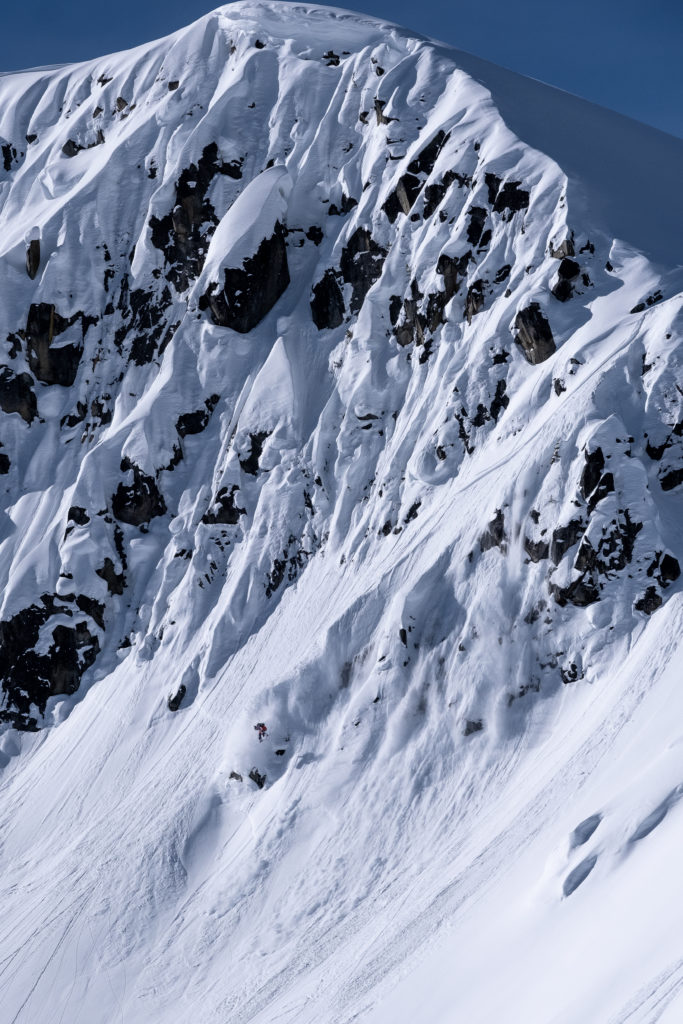
Darrah: I think a lot of snowboarders are so enthusiastic about getting into the backcountry they forget how important it is to educate themselves first (I’m not excluding myself from this category). You seem like you have a very knowledgeable and safe approach, which I really admire. How long have you been studying backcountry safety and how did you become interested?
Will: This is a long winded answer but will give good insight. I moved to Whistler 8 years ago with no real plans for my future. I quickly learned that backcountry guides make their living guiding and teaching in the great outdoors. My parents always called me an outdoor kid when I was growing up so the decision to pursue a career where I get to spend the majority of my time in the mountains was a no brainer. I took a year long Mountain Skills Training Course when I was 19. I got to experience a wide variety of mountain sports in this program: rock climbing, ice climbing, backcountry skiing, white water rafting and more. After the program I decided to focus on a few facets of the industry that were of particular interest to me. So I took all of the avalanche safety and climbing courses I could register for, and got the show on the road! I have always been fascinated by big steep mountains. Dreams of riding in Alaska, the Alps and other great mountain ranges around the world have fuelled my desire to learn. If you want to be in big complex mountains it’s essential to have a solid mountain skill set. I wanted to plan big expeditions into remote places and needed to develop the skill set to make that practical. I started studying backcountry safety 7 years ago, I started teaching Avalanche courses 3 years ago, and plan to continue learning and teaching for the foreseeable future.
Darrah: What should someone interested in exploring beyond the resort do as a first step?
Will: If someone is interested in exploring beyond the resort, taking an avalanche course is the first step. Finding a solid group of trusted friends to start exploring with comes next!
Darrah: Once that first step is complete, do you have a few general tips for staying safe out there (I know it’s very complex and nuanced but is there a “top 5” rule list for safe backcountry travel?)
Will: I definitely have a few tips that I’d like to pass on, before getting into the tips I’d like to point out that we as humans are extremely fragile creatures in a very large, unpredictable environment. The reality of heading into the mountains is that you have to take on some risk to be there, how we mitigate those risks dictates to some extent how safe we will be.
If you are in hazardous terrain , always keep eyes on your partners. Things go wrong very quickly in the mountains. If you are watching when an accident occurs, you will be able to react as efficiently and quickly as possible. If you were not watching, it will take you more time to respond and you will have less information to go off.
Analyze the worst possible scenario so that you are prepared to respond to it. Maintaining control of situations is crucial, if you lose control, things are chaotic, the chaos makes it difficult to respond as efficiently as possible. If I am going to take on risk in the mountains, I like to analyze the worst case, and have a response plan in place for that scenario. I then will discuss with my partners how we are going to react so that everyone is on the same page. Thorough communication, thoughtful planning and a solid team are all a crucial part of staying safe.
Always be prepared to turn around, oftentimes it is not safe to ride the big line you were hoping to, If you see red flags and the environment is saying that today is not the day to expose yourself, there is no shame in deciding not to do something. The mountains will be here forever, and we are just passing through.. Never forget that.
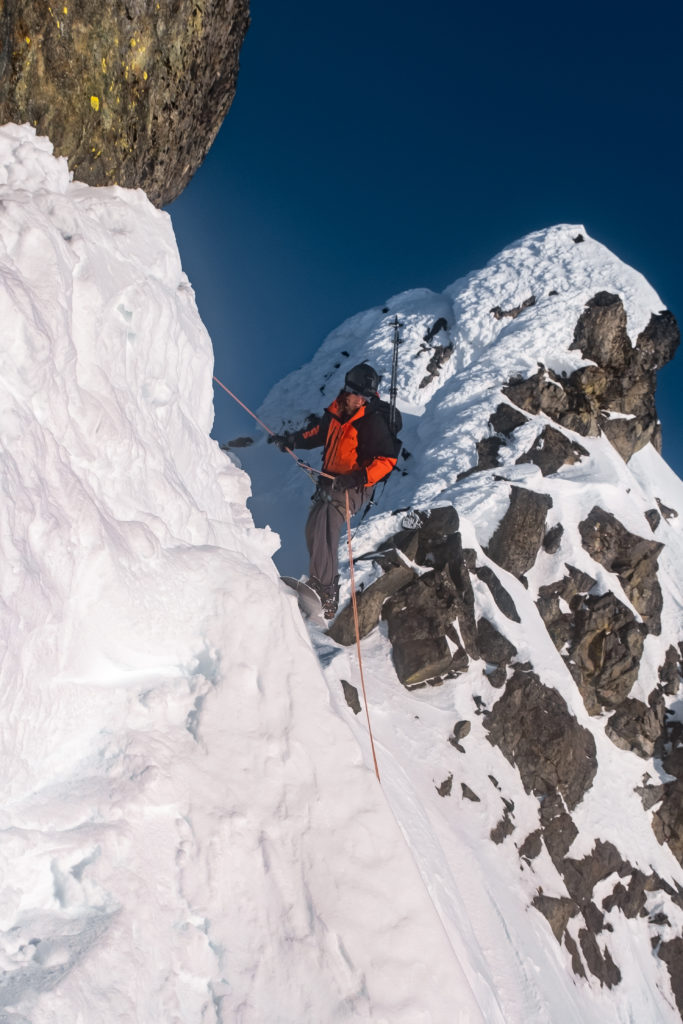
Darrah: Are there any specific risks people should be aware of during the early season when snow levels are lower? Do you approach things differently this time of year vs. full on winter?
Will: Early season riding definitely has some specific risks.
Rocks are barely covered, they are easy to hit on a snowboard, this could make you crash, and tomahawking is risky when there are more rocks that are barely covered. Wear a helmet and be conservative with how you’re riding early in the season.
Crevasses on glaciers are thinly bridged, waiting until there is a few meters of snow on the glaciers is a smart habit to get into.
Avalanches have the potential to take you into the two hazards listed above, because there are more hazards in the early season, it can be a riskier time to ride. A conservative approach is the best way to start a long season!
Darrah: What is your routine the night before and morning of a big day touring or sledding? (Can you talk particularly about the safety steps in your routine?).
Will: Preparation is KEY before going into the backcountry. There are simple things to do, like checking your transceiver batteries and making sure all your rescue gear functions well.
As well as doing the simple things it is important to really put thought into what your plans are for the day. I’d like to reiterate a point I made in the tips section, Analyze the worst possible scenario so that you are prepared to respond to it!! Where I am going, the weather, the style of terrain we are in, the resources available and more determines what I will carry in my pack. If I am going to a remote location and the weather is forecasted to be poor, It’s important to be able to count on yourself for rescue. I like to ask myself, what will I need to respond to this worst case scenario? And that is what I prepare myself with. If I could have you take anything from reading this it would be to take time with your introduction to the backcountry, The mountains will be here forever, and we are just passing through. It is a long beautiful life we get to live, take the time to educate yourself and you will be able to shred pow for the rest of your life.
Darrah: Beautifully said. Thanks so much Will!
